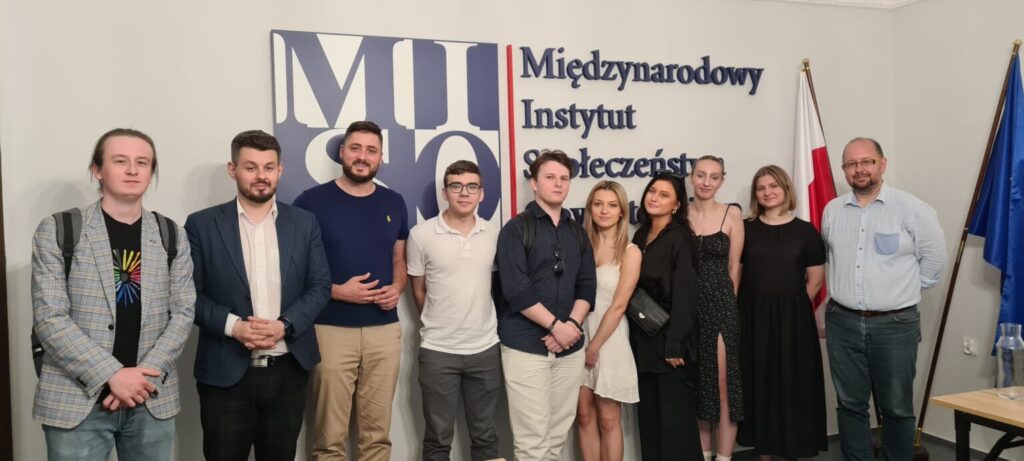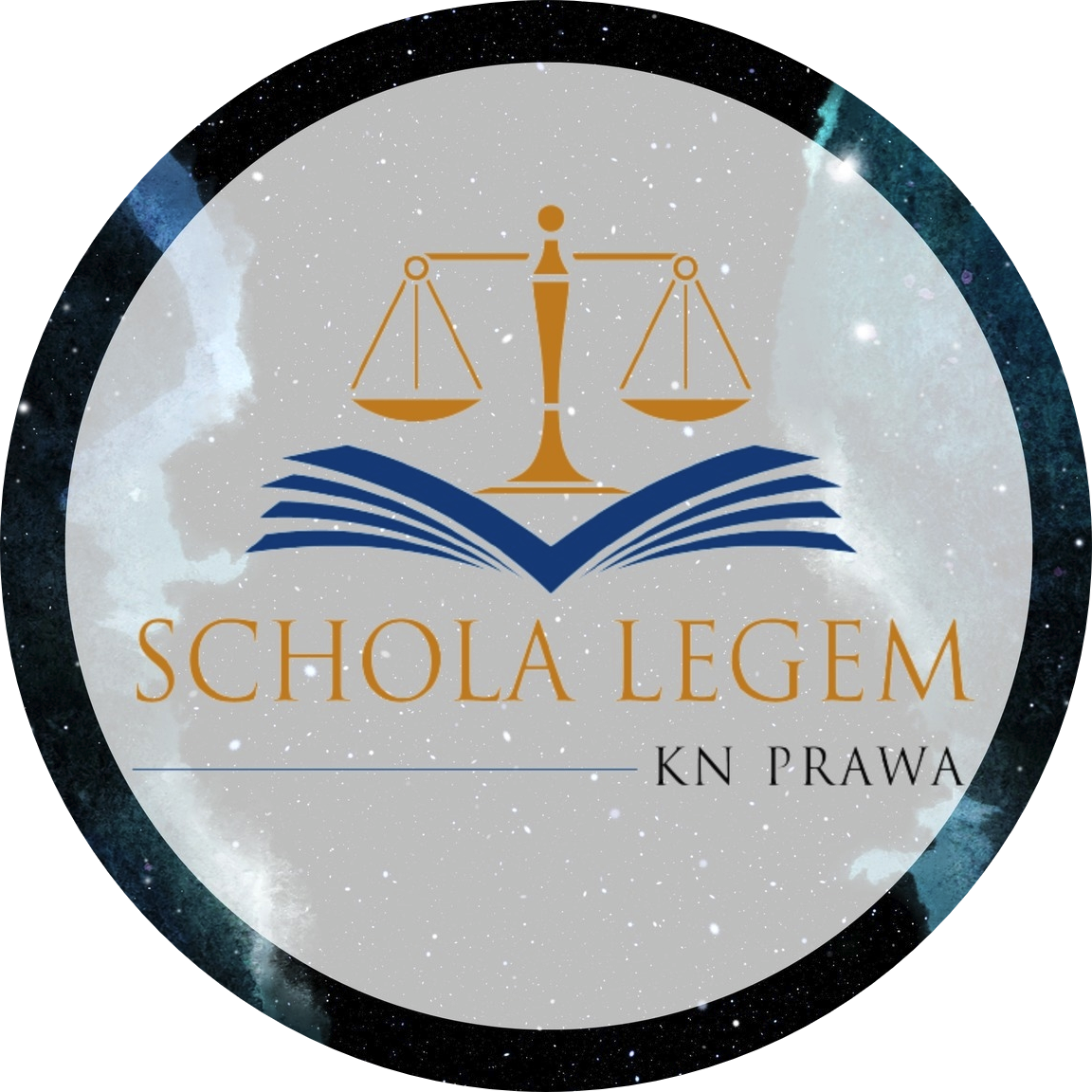On the second day of Schola Legem’s trip to Warsaw (04.07.2023), the students alongside the tour liders had an opportunity to take a part in an editorial board of Kultura Liberalna (Liberal Culture) and meet with Editor-in-chief Jarosław Kuisz PhD (President of the Liberal Culture Foundation and Adjunct Professor at the Institute of the History of Law, Faculty of Law and Administration, University of Warsaw) and the rest of the editors.
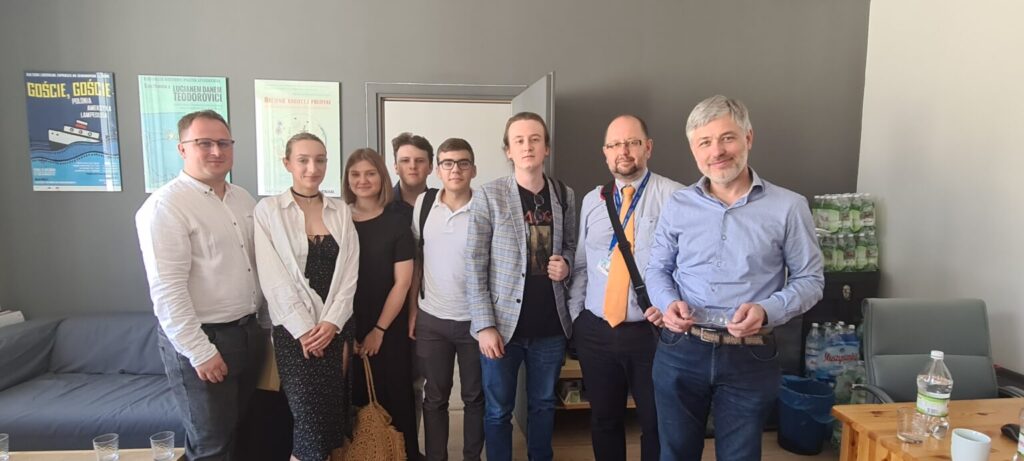
During the conducted debate, whose integral part was a short speech of every participant of the tour on the subjects presented in the latest Liberal Culture’s weekly magazine (https://kulturaliberalna.pl/2023/07/04/samotny-jak-kot-lojalny-jak-pies-czego-uczymy-sie-od-zwierzat/), the students became familiar with the phenomenon of relationship between man and animal and taking the most diverse forms. In the 21st century, in which globalization, paradoxically, distances people in the immediate vicinity from each other and brings strangers closer, and the accelerated pace of life is not conducive to the gradual building of relationships, people seek solace around pets. A human being whilst being unable to trick his/her own nature, need for closeness and other subconcious desires, he/she will find comfort among animals, which become a substitute to regular interpersonal relations. When animals replace humans, it is unevitable not to anthropomorphize the bound with them. The phenomenon of humanization and it being impossible for humans not to partake in it was emphatically proven within the course of the debate. Despite the fact that humans are the only dominant race in the world in every part of life, no human is capable of full comprehension how animals see and feel the world themselves. People tend to fall into the loop of naming each and every action of their pets and translating them as if the animals knew the cultural code of humans. Another brought up topic concerned was the emotional aspect, the emotions that an animal can feel towards its owner – the participants of the debate wondered whether the animal can love, how it loves and why. Apart from the psychological side, the discussion questioned the insights of Descartes, whose theses degraded the emotional layer of the animal, making them “unfeeling machines made of meat.” What is more, the very human superiority over animals became one of the breaking points of discussion among the students and the editors. The achievements of human race, conducted research and increased sensitivity towards home pets allows to see them as an element of the kingdom of animals, which have their place in the world and posses rights to live their lives free of pain, fear and other discomforts. At present it is also noticed, that animal rights are as important as human rights written in the basic laws of individual countries around the world. It was also stated during the debate, that the legal doctrine shall be enriched with issues related to the emotional bond between humans and domesticated animals and issues coupled with its protection.

Afterwards the students went to the Polish Senate. In the upper house of parliament, tour participants were given a guided tour of the buildings that make up the Polish Senate. What is more, the students had a chance to listen to a brief lecture about the history of Polish parliamentarism and see the meeting room of the Senate. Into the programme of the trip around the Senate a short trip around the Polish Sejm was introduced. The tour participants with the tour liders had an opportunity to see the meeting room of Polish Sejm.
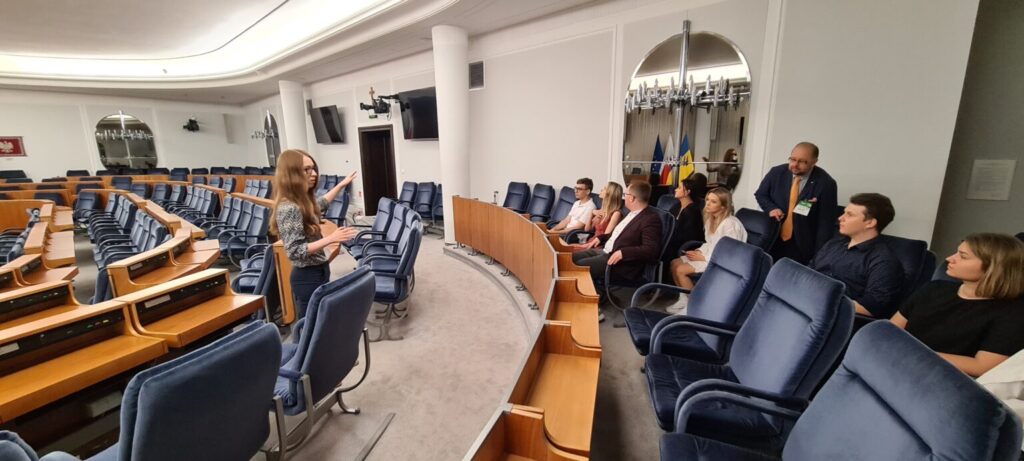
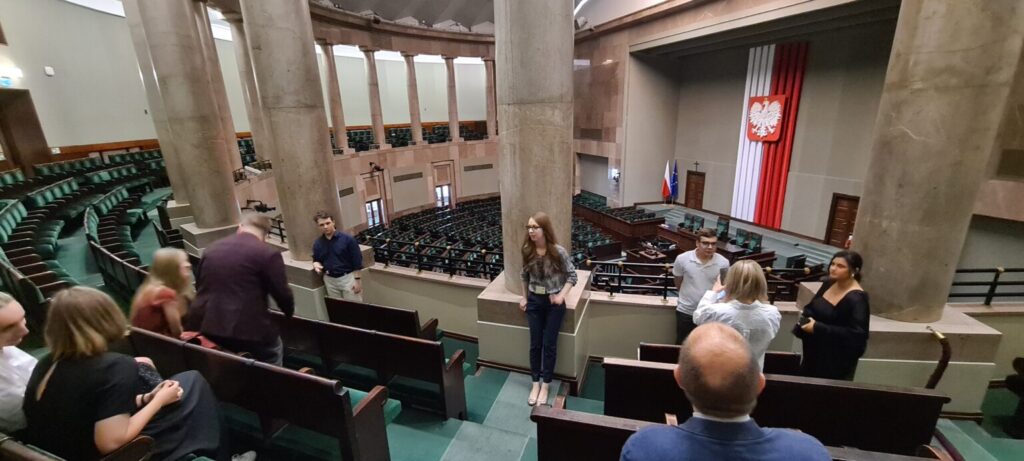
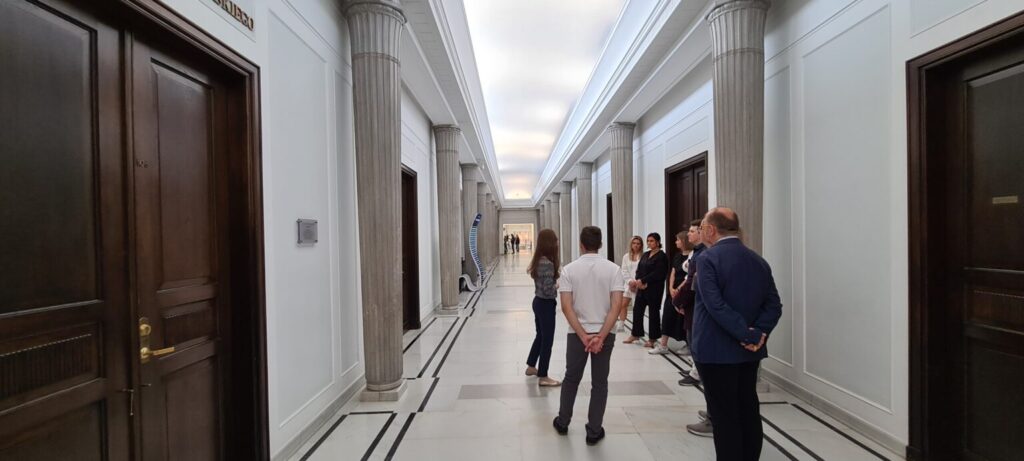
Afterwards, the tour took advantage of an invitation from The International Institute of Civil Society (MISO) and participated in the meeting with the board of the foundation. During the meeting, the students took an active part in a conversation on the spreading of grassroots initiatives and civic attitudes in Polish society. It was wondered what the idea of the civil society should be and what forms it should manifest itself. Legal regulations regarding the civil society are to be found inter alia in The Constitution of the Republic of Poland (despite the fact that the civil society is neither defined in the Polish Constitution, nor marked with any legal definition, it can still be described basing on the text), Law on Guarantees of Freedom of Conscience and Religion, law on petitions, association law. It was underlined, that the starting point of building the civil society is to spread awareness about the possible forms of action of every citizen and foreigner, as well as education within the scope of the most basic rules of economics, politics and legal aspects of every day world. The reality of smaller villages was contrasted with the ideas of civil society, which allowed the participants of the meeting see the problems related to e.g. awareness of the possibility of grassroots action and having a genuine impact on reality, which – sadly – in the current times has been replaced with passivity and subordination. What is more, it was pointed out that the majority of people neither see nor understand the problems of people with disabilities, which – against all odds – could be solved promptly with simple solutions, should enough effort to do so be found. A visit in the headquarters of MISO enriched the knowledge of participants in the topics close to the citizen and broadened the horizons in the scope of changes that need to be made in the incoming future. However, what is most important – the changes can be introduced with the usage of existing legal instruments, of which most people have no idea of.
